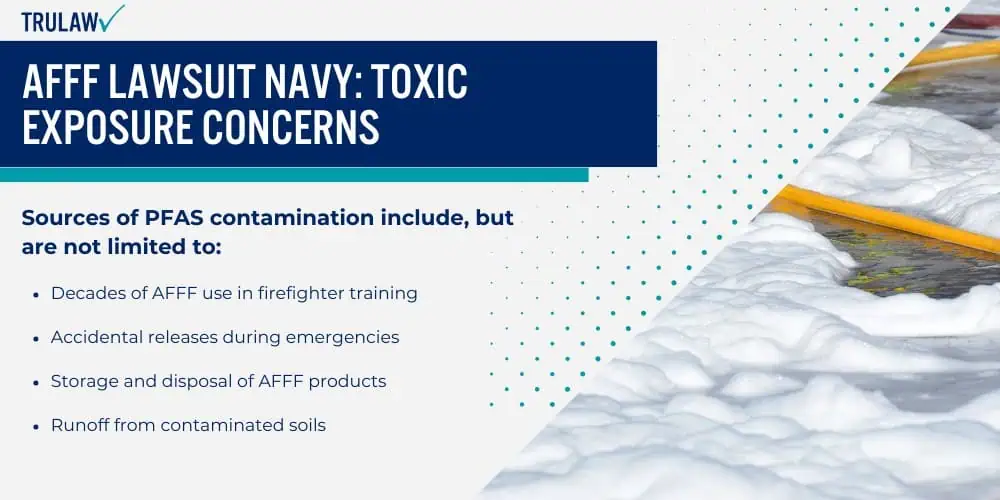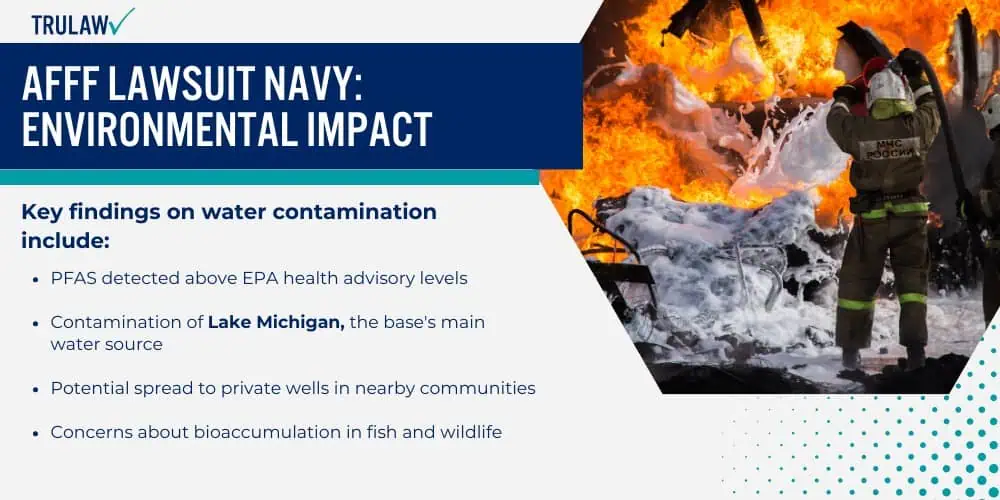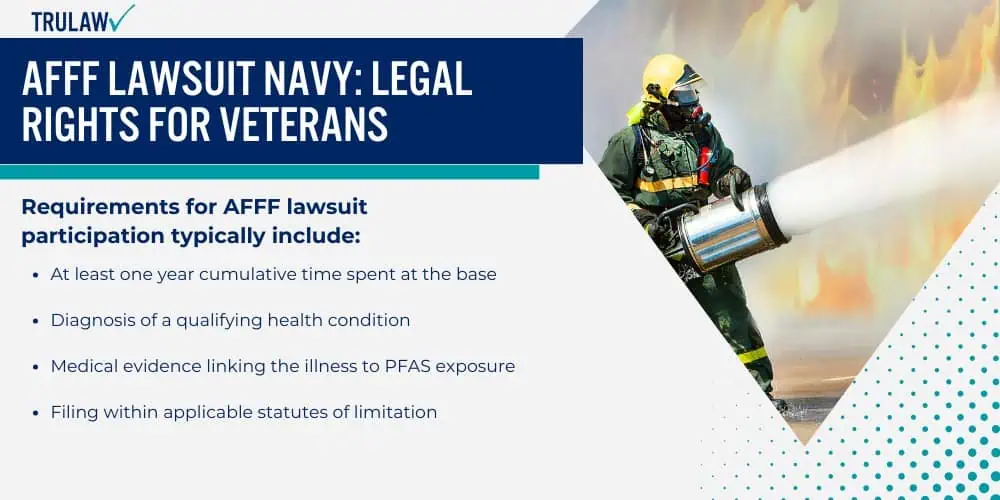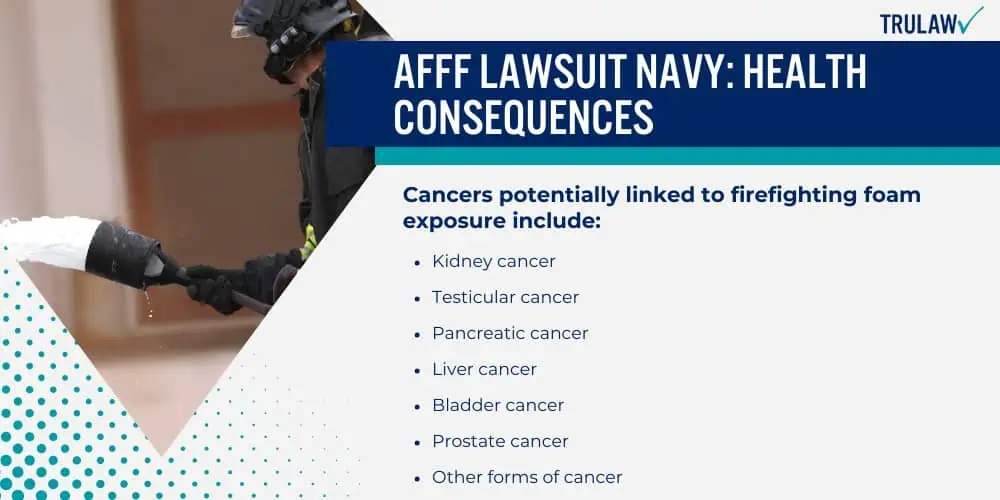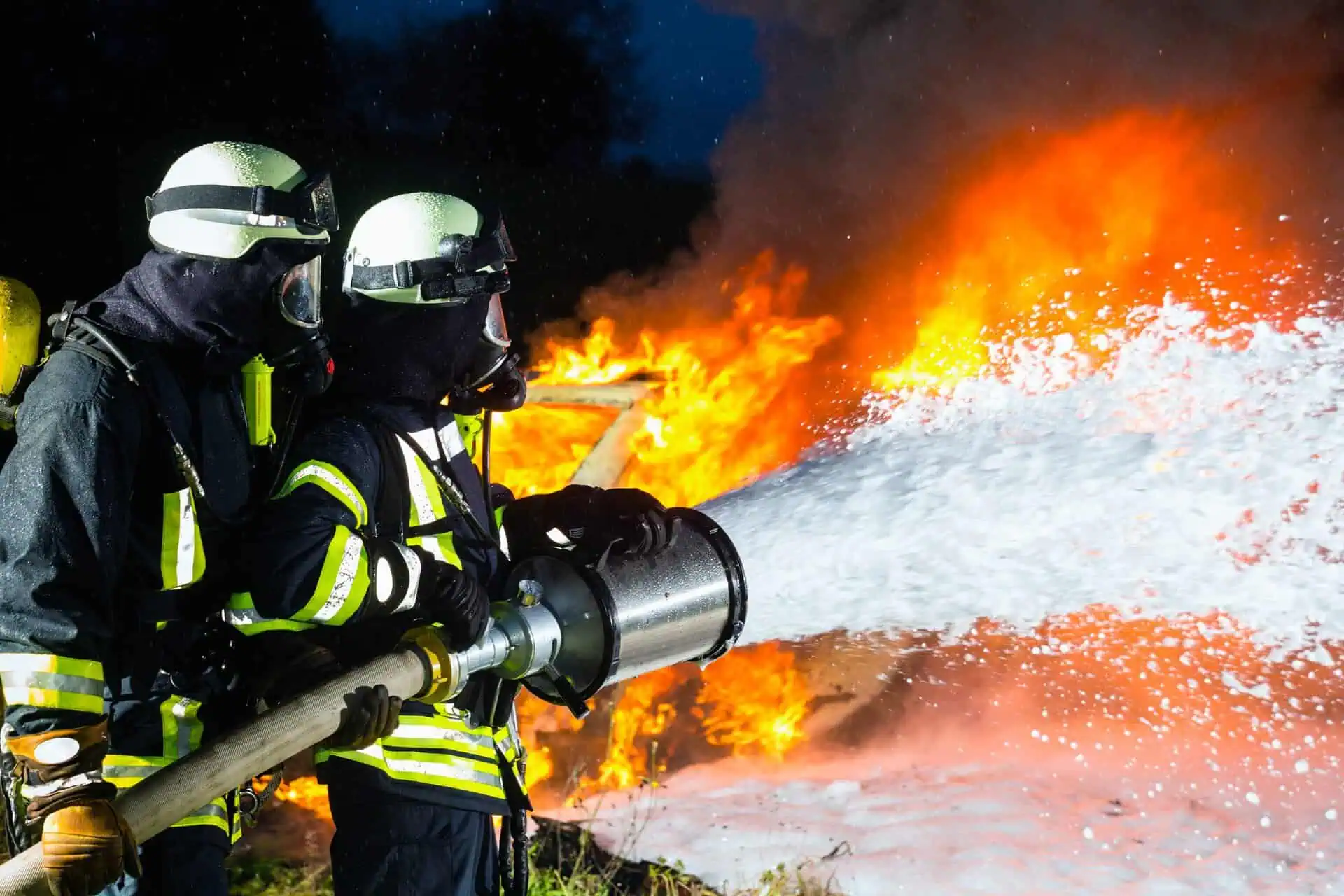Naval Station Great Lakes has a long and storied past as a critical training facility for the U.S. Navy.
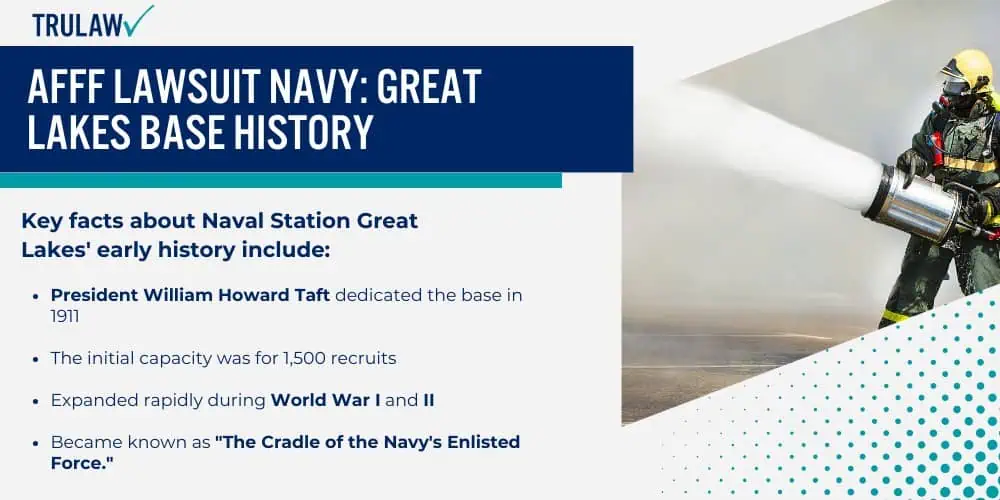
Founded in 1911, Naval Station Great Lakes has long served as the Navy’s largest training facility and only boot camp.
Key facts about the base’s history:
- Established near North Chicago, IL, to train recruits from across the Midwest
- Dedicated by President Howard Taft in 1911, with an initial capacity of 1,500 recruits
- Expanded significantly during World Wars I and II, when recruits lived in makeshift tent cities
- Nicknamed “The Quarterdeck of the Navy” for its role in shaping new sailors
Today, over 40,000 recruits still pass through Great Lakes each year to complete basic training. The base is also home to advanced training schools for many specialties.
Unfortunately, the decades-long use of AFFF firefighting foam at Great Lakes has led to widespread contamination. Many who lived and worked on the base were unknowingly exposed to toxic PFAS chemicals.
Base’s Role in Navy Training Programs
Naval Station Great Lakes plays a vital role in shaping new sailors.
It provides basic training as well as advanced technical instruction.
The base is home to several major training commands:
- Recruit Training Command – The Navy’s only boot camp
- Training Support Center – Provides specialized skill training
- Navy Recruiting District Chicago – Coordinates regional recruiting efforts
Over 40,000 recruits complete basic training at Great Lakes annually.
The base has trained millions of sailors throughout its history, including many military firefighters who would later be exposed to AFFF firefighting foam.
Unfortunately, many of these individuals were unknowingly exposed to firefighting foam containing harmful chemicals during their training and service.

